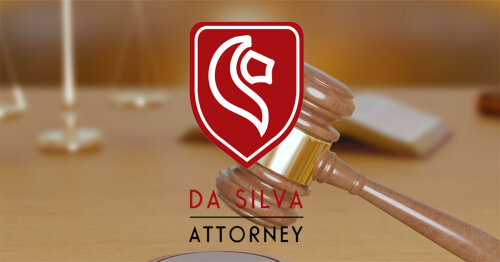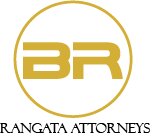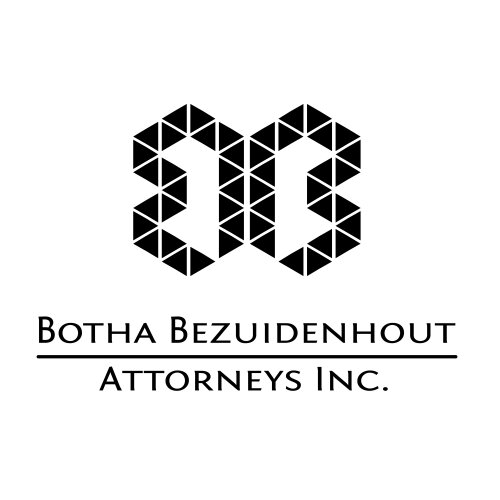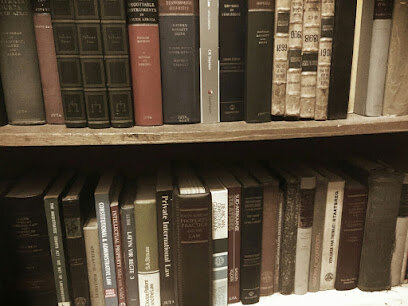Best Communications & Media Law Lawyers in Pretoria
Share your needs with us, get contacted by law firms.
Free. Takes 2 min.
List of the best lawyers in Pretoria, South Africa
About Communications & Media Law in Pretoria, South Africa
Communications & Media Law in Pretoria, South Africa, is an evolving field that deals with the regulation of electronic media, telecommunications, digital platforms, and broadcasting. It addresses various legal issues, including intellectual property rights, privacy concerns, copyright management, defamation, and the regulation of advertising. The landscape of media and communications is continually changing, influenced by both local legislation and international developments, making it vital for individuals and businesses operating in this sector to stay informed about the latest legal requirements and trends.
Why You May Need a Lawyer
There are several situations in Communications & Media Law where legal assistance may be necessary. Individuals and organizations often require guidance when dealing with:
- Violations of privacy and data protection laws.
- Defamation suits involving printed, broadcast, or online content.
- Intellectual property disputes, such as copyright infringement.
- Compliance with advertising and broadcasting regulations.
- Contract negotiations with media agencies or telecommunications providers.
- Regulatory approval processes for launching new media or communications services.
- Legal challenges regarding freedom of expression and censorship issues.
Local Laws Overview
The legal framework governing Communications & Media Law in Pretoria, South Africa, is comprehensive. Key legislative acts include:
- The Electronic Communications Act (ECA): Regulates broadcasting services and electronic communication networks.
- The Protection of Personal Information Act (POPIA): Addresses users' rights regarding their personal data and the responsibilities of data handlers.
- The Copyright Act: Protects the rights of authors, musicians, producers, and broadcasters concerning their creative works.
- The Press Code: Sets standards for ethical journalism and the handling of complaints about journalistic activities.
In addition to these, various constitutional rights, such as the right to privacy, freedom of expression, and freedom of the press, also play a significant role in shaping the legal landscape.
Frequently Asked Questions
What is Communications & Media Law?
Communications & Media Law encompasses the regulations and legal principles that govern the creation, distribution, and consumption of information through various media channels like television, radio, internet, and print.
How does defamation law work in South Africa?
Defamation law in South Africa protects individuals' dignity and reputation. A statement is considered defamatory if it harms someone's reputation without a lawful justification, and legal action can be initiated to seek damages.
What are the implications of the POPIA for media companies?
POPIA stresses protecting personal information processed by companies, including media entities. Compliance involves securing personal data, ensuring transparency about data usage, and obtaining consent from data subjects where necessary.
Can I challenge a government decision affecting media freedom?
Yes, under South African law, you can challenge government actions affecting media freedom through judicial review, provided you can demonstrate that the decision is unlawful, unreasonable, or procedurally unfair.
What must one consider when using copyrighted material?
When using copyrighted material, ensure proper licensing or permissions are obtained. Fair use may apply in certain situations, such as for commentary, criticism, or news reporting, but it is essential to understand the limits of these exceptions.
What legal avenues exist for addressing breaches of advertising standards?
Breaches of advertising standards can be addressed through the Advertising Regulatory Board (ARB), where complaints can be lodged regarding misleading, inappropriate, or unethical advertising practices.
How are telecommunications services regulated?
The Independent Communications Authority of South Africa (ICASA) oversees the regulation of telecommunications in South Africa, including licensing, standards enforcement, and consumer protection measures.
What restrictions exist on broadcasting content?
Broadcasting content in South Africa is subject to regulations that prohibit hate speech, misleading information, and content harmful to children, adhering to the standards set by ICASA.
How do licensing agreements work in content broadcasting?
Licensing agreements in broadcasting govern the terms under which content is distributed. These agreements typically outline territories, duration, fees, and usage rights, ensuring that all parties retain and respect their respective rights.
What are the consequences of failing to comply with Communications & Media laws?
Non-compliance can lead to various consequences, such as fines, reputational damage, revocation of licenses, or potential lawsuits, depending on the severity and nature of the breach.
Additional Resources
For those seeking more information or legal advice in Communications & Media Law, several resources can be valuable:
- Independent Communications Authority of South Africa (ICASA)
- South African National Editors' Forum (SANEF)
- Advertising Regulatory Board (ARB)
- South African Communications Forum (SACF)
- Legal Aid South Africa for accessible legal guidance
Next Steps
If you need legal assistance in Communications & Media Law, consider the following steps:
- Consult with a law firm that specializes in Communications & Media Law for expert advice.
- Engage with professional legal bodies or associations in Pretoria for recommendations on suitable legal practitioners.
- Ensure you understand the specifics of your legal issue and prepare all necessary documentation before your consultation.
- Inquire about the lawyer's experience in similar cases and seek a detailed breakdown of anticipated costs and timelines.
Lawzana helps you find the best lawyers and law firms in Pretoria through a curated and pre-screened list of qualified legal professionals. Our platform offers rankings and detailed profiles of attorneys and law firms, allowing you to compare based on practice areas, including Communications & Media Law, experience, and client feedback.
Each profile includes a description of the firm's areas of practice, client reviews, team members and partners, year of establishment, spoken languages, office locations, contact information, social media presence, and any published articles or resources. Most firms on our platform speak English and are experienced in both local and international legal matters.
Get a quote from top-rated law firms in Pretoria, South Africa — quickly, securely, and without unnecessary hassle.
Disclaimer:
The information provided on this page is for general informational purposes only and does not constitute legal advice. While we strive to ensure the accuracy and relevance of the content, legal information may change over time, and interpretations of the law can vary. You should always consult with a qualified legal professional for advice specific to your situation.
We disclaim all liability for actions taken or not taken based on the content of this page. If you believe any information is incorrect or outdated, please contact us, and we will review and update it where appropriate.
















